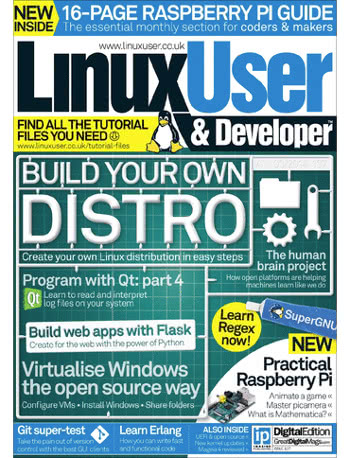 In Imagine Publishing’s Linux User & Developer this month, you’ll find an interview with Mark Doron of the UEFI Forum nestled alongside my usual four-page spread of news.
In Imagine Publishing’s Linux User & Developer this month, you’ll find an interview with Mark Doron of the UEFI Forum nestled alongside my usual four-page spread of news.
For those unfamiliar with his work, the Unified Extensible Firmware Interface (UEFI) is the modern replacement for the aged and creaking Basic Input-Output System (BIOS) which can trace its roots all the way back to the original IBM PC. As Doran tells it:
When I first started working on this back in the late 90s, I had the interesting experience of going to IBM and talking to them about the need to change how firmware is constructed for Intel Architecture machines, based on limitations we were running into with conventional BIOS technology. A couple of the guys in the audience, no big surprise perhaps, were part of the original team from Boca Raton that was building the PC AT and the conventional BIOS with it. They said ‘you know, the mission we were handed originally was to build code that would support a product that was meant to be 250,000 machines to end-of-life; we had no idea when we sat down to do that that this code would still be kicking around 20, 25 years later.’
That impressive reign is coming to an end with the introduction of the far more flexible and easy-to-understand UEFI. Its adoption in open source projects has been slow, however: concerns over Microsoft’s role in signing binaries for the Secure Boot portion of the system, including fears that the technology could be used to lock third-party operating systems like Linux out of the market altogether, left a sour taste in the mouths of many.
That’s changing, with the Linux Foundation itself now a member of the UEFI Forum group. Much of my discussion with Doran, and in particular in this interview extract, centred around the improving adoption of UEFI and Secure Boot support in open-source projects – a shift he highlights as the result of a lot of bridge-building and better explanation of his group’s goals.
In addition to the interview, my regular four-page spread of news this month covers comments made in favour of open standards and open-source software by Cabinet Office minister Francis Maude, Nvidia’s contribution of open-source patch sets to the Nouveau project, the launch of the DARPA Open Catalogue, the impending launch of the revised Fuze Powered by Raspberry Pi design – complete with a small price reduction, and more.
Linux User & Developer Issue 137 is available at all good newsagents and a few not-so-good ones now, digitally via Zinio and similar services, or direct from Imagine Publishing via the official site.
